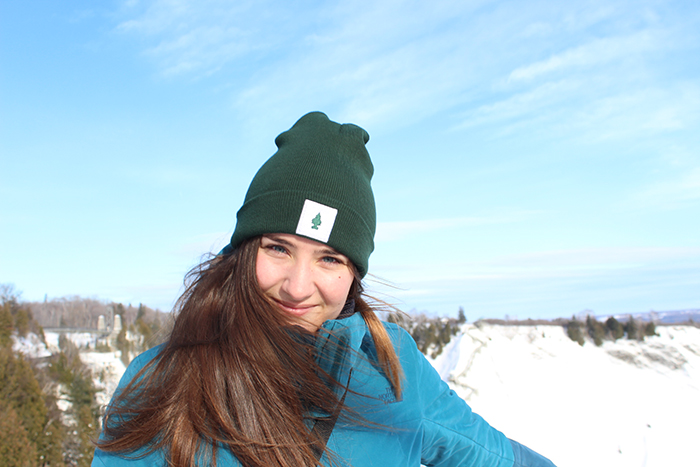We’re taking time over the following weeks to get to know the members of the GSA’s Early Career Scientist Committees. Join us every week to learn more about our early career scientist advocates.

Carla Bautista Rodriguez
Communication and Outreach Subcommittee
Université Laval
Research Interest
Until relatively recently, the thought of extraterrestrial life seemed like science fiction, but we’ve since discovered that the limits of life are much greater than we thought. We’ve detected organisms in inhospitable places like in Antarctica, thermal springs, volcanoes, and hypersaline zones. We need to explore the evolutionary mechanisms that lead to the adaptations that allow these organisms to survive in extreme places.
This is where the science of astrobiology comes in; it deals with the origin, evolution, and future of life in the universe. I study the evolution of life in extreme and exoplanetary environments. I hope to understand what contributes to adaptation to extreme conditions and to uncover the molecular basis of these adaptations. I apply high selective pressures via ultraviolet (UV) radiation and examine the evolutionary consequences in terms of adaptation. This approach helps us identify potential genetic-level adaptations that could evolve in environments with high UV radiation, such as the exposed surfaces of other planets. We hope to identify proteins responsible for UV radiation resistance that could be used as targets when equipping space probes of future space missions.
This line of study could also help identify gene therapies for skin cancers since many yeast genes involved in DNA damage repair after UV radiation have human orthologs. Using UV radiation to increase genomic instability to understand how these cells react may provide useful information about the low success of some treatments. Understanding the global response of the UV tolerance trait may also allow us to contribute to fields like biotechnology in efforts to engineer organisms (such as crops) with high tolerance to UV radiation.
My purpose as an astrobiologist is to gain insight into the origins of life to better understand how organisms evolved in the extreme conditions of the Earth—and what kind of life could be found in extraterrestrial conditions.
As a PhD-trained scientist, you have many career options. What career paths interest you the most?
When I think about the future, I see myself in a research-intensive career that also has a teaching component. I’m very curious and enjoy learning; I’d like to have the opportunity to learn throughout my career while also mentoring others.
My first teaching experience started at the end of high school and continued through the first years of university. Through these private classes, I was realized that I was interested in teaching. I later organized workshops for children in India and gave talks about my volunteer teaching experience in schools in Spain. Science and research are fundamental in today’s society; however, they are often disconnected from the general population, which makes it difficult to convey their importance. Teaching gives us the opportunity to transmit this information.
In addition to your research, how else do you want to advance the scientific enterprise?
I would like to develop skills that are not always emphasized in conventional training, such as the ability to communicate effectively with the larger community of professional scientists and with the general public. Our training is often based on learning to communicate with other professionals in our specific area—not even with the global scientific community. I think it is important to make scientists aware of the work in areas of research outside their own. Reading about the problems and solutions from other fields provides a broad perspective of science, which could open new paths in their own research.
It’s necessary to put society in contact with our advances and to break the barrier that separates us, which is often unconsciously built by scientists. I want to dedicate a part of my career to organizing public outreach activities like conferences and workshops.
As a leader within the Genetics Society of America, what do you hope to accomplish?
As a member of the Communication and Outreach Subcommittee, I look forward to contributing to communication channels that reach both scientists and the general public. I also want to continue building my own communication skills. Through workshops and/or blog posts, I’d like to work on guiding scientists to tailor how the communication of their results to their specific audience.
Previous Leadership Experience
- Project Development, Youth Exchanges (France, Germany, Malta, Cyprus)—Youthpass
- Board of Directors—Trotamundos
- Board of Directors—Carpe Diem
- Volunteer, India—Vicente Ferrer Foundation
Contact
- Lab Website
- Instagram @carlabautistaro
- Twitter: @carlabautistaro































